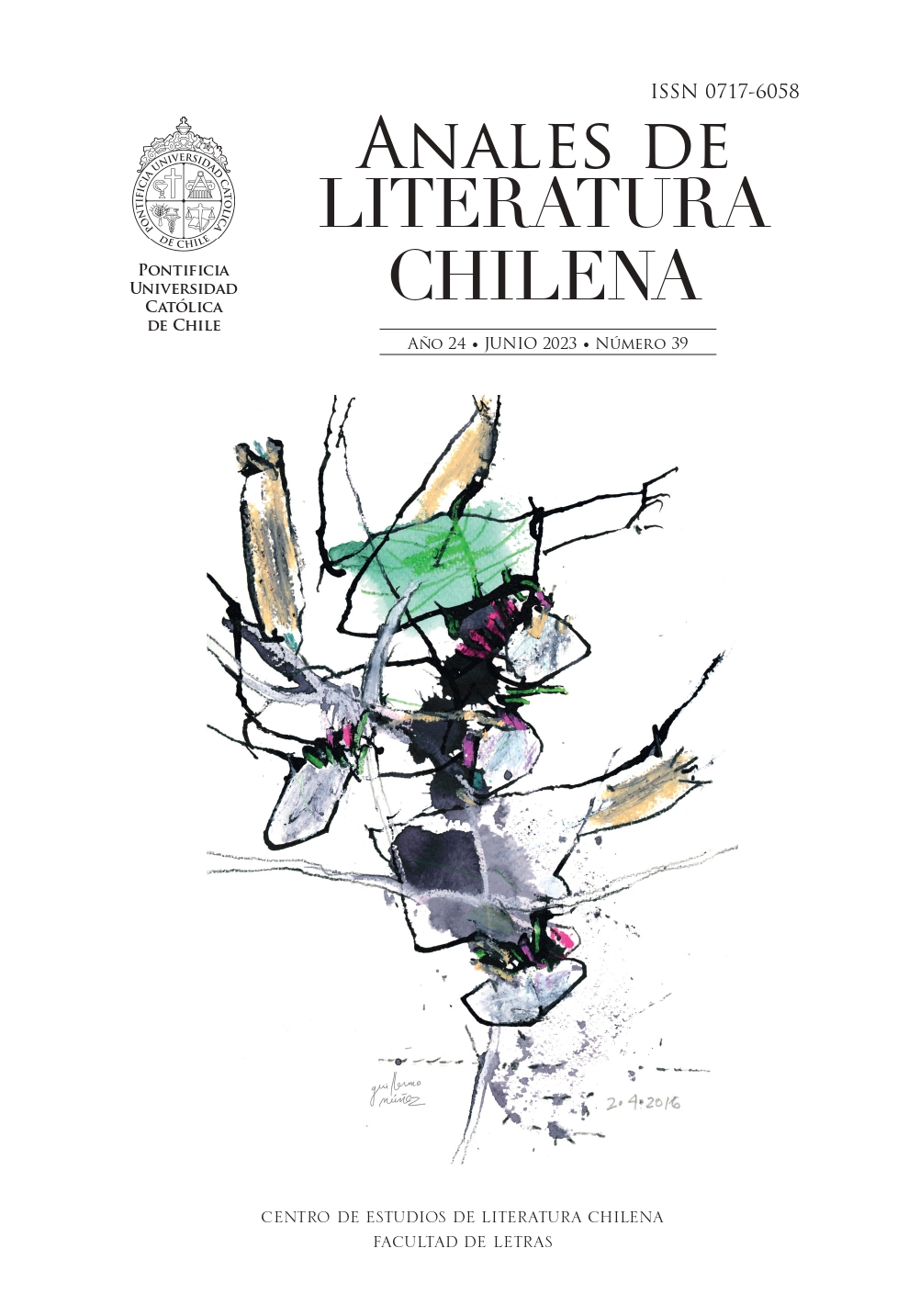“UN OJO SIN LUZ DE NACIMIENTO”: CAUPOLICÁN’S DISABILITY IN "LA ARAUCANA" AND "CANTO GENERAL"
DOI:
https://doi.org/10.7764/ANALESLITCHI.39.09Keywords:
Disability studies, materiality of metaphor, CaupolicánAbstract
This article argues that the disability of Caupolicán, a one-eyed Mapuche hero, functions as a literary resource and as an interpretative category in Alonso de Ercilla’s La Araucana (I: 1569; II: 1578; III: 1589) and Pablo Neruda’s Canto General (1950), especially within the “trunk test” scene. Although this physical anomaly is not explicitly mentioned, both texts display different visual rhetoric. In Canto II of La Araucana, an exotic and marvelous vision eroticizes the strength of the Mapuche toqui and his disabled body. This colonial discourse (Chilean/European) generates the epic character of the Araucanian leader. In the poem “Toqui Caupolicán” by Neruda, the natural world portrays the power of the hero and his ignored disability through a realist rhetoric, fostered by metaphorical images. When received in the Chilean and Latin American context, this figuration embodies the communal resistance and geographical union of the Mapuche people. Thus, by including disability as an analytical, critical, and contrastive category, this article explores the materiality of metaphor and its role in the characterization of indigenous epic characters.
Downloads
Downloads
Published
How to Cite
Issue
Section
License

This work is licensed under a Creative Commons Attribution-NoDerivatives 4.0 International License.


